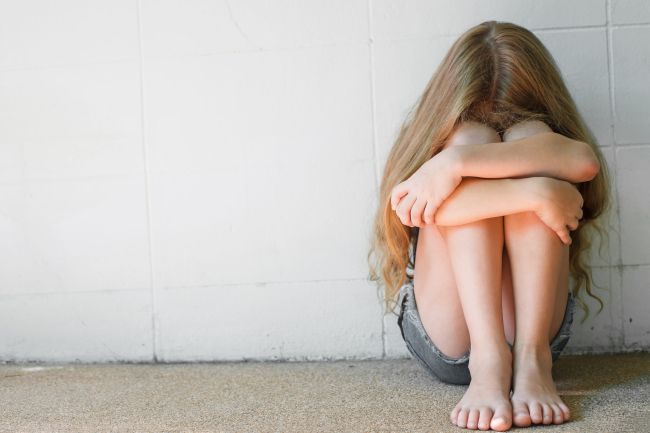Gripped by feelings of worthlessness, isolation and despair, 17-year-old Kim Mi-sun (not her real name) considered jumping from the roof of the building she lived in.
Without anyone to share her feelings, she often cried to sleep. She has searched online for ways to kill herself and people to attempt suicide with, and even left a suicide note.
“I was not close to my mother. I suffered from sociophobia and depression since I was in the middle school. I felt like there was no one who sympathized with me or understood me. I felt like I was completely alone,” said the student from Ulsan. “I felt I would not suffer if I just died.”
Without anyone to share her feelings, she often cried to sleep. She has searched online for ways to kill herself and people to attempt suicide with, and even left a suicide note.
“I was not close to my mother. I suffered from sociophobia and depression since I was in the middle school. I felt like there was no one who sympathized with me or understood me. I felt like I was completely alone,” said the student from Ulsan. “I felt I would not suffer if I just died.”

What helped her through the difficult times was a counselling service she received from the Youth Counselling and Welfare Centers as a part of the Gender Ministry’s community youth safety-net program.
After being categorized as a student who needs special attention through a test, she was initially reluctant to see counsellors. “I had no trust in such counselling services and I hated to open myself up to others.”
But now she considers herself “lucky.”
“Through counselling, I gained confidence. I learned that it was okay to make mistakes. I learned that I was precious the way I was,” said Kim, who received the counselling service from May to September this year.
Kim is one of the 172,900 teenagers who has been covered by the ministry’s community safety-net program this year. Some 34,775 were offered counselling under the program.
The Gender Ministry aims to provide a social safety net for juveniles in crises such as runaways, dropouts and those exposed to various hardships from sexual violence, domestic violence and bullying at schools.
Some 1,079 juveniles from multicultural backgrounds and from North Korea also received support through the program on 15,606 occasions.
In partnership with municipalities, police stations, education offices and health clinics in the local community, the Gender Ministry discovers vulnerable youth and helps them to return to their homes, schools and society in accordance with Juvenile Welfare Support Act.
It has 222 counselling facilities across the nation with 1,066 counsellors with an expertise in social welfare and youth to provide the teenagers at risk with one-on-one or group counselling, short-term and long-term protection, legal advice, medical services and financial support.
Starting in 2017, the ministry plans to expand the youth support program by increasing the number of youth counsellors from the current 1,066 to 1,146, with the budget to rise by 9.4 percent to 8.1 billion won.
“The ministry will increase the number of counsellors and harness their skills so that youngsters in crisis can receive customized services,” said Yang Cheol-soo, who is in charge of the ministry’s division for self-reliance on youth.
By Ock Hyun-ju (laeticia.ock@heraldcorp.com)
After being categorized as a student who needs special attention through a test, she was initially reluctant to see counsellors. “I had no trust in such counselling services and I hated to open myself up to others.”
But now she considers herself “lucky.”
“Through counselling, I gained confidence. I learned that it was okay to make mistakes. I learned that I was precious the way I was,” said Kim, who received the counselling service from May to September this year.
Kim is one of the 172,900 teenagers who has been covered by the ministry’s community safety-net program this year. Some 34,775 were offered counselling under the program.
The Gender Ministry aims to provide a social safety net for juveniles in crises such as runaways, dropouts and those exposed to various hardships from sexual violence, domestic violence and bullying at schools.
Some 1,079 juveniles from multicultural backgrounds and from North Korea also received support through the program on 15,606 occasions.
In partnership with municipalities, police stations, education offices and health clinics in the local community, the Gender Ministry discovers vulnerable youth and helps them to return to their homes, schools and society in accordance with Juvenile Welfare Support Act.
It has 222 counselling facilities across the nation with 1,066 counsellors with an expertise in social welfare and youth to provide the teenagers at risk with one-on-one or group counselling, short-term and long-term protection, legal advice, medical services and financial support.
Starting in 2017, the ministry plans to expand the youth support program by increasing the number of youth counsellors from the current 1,066 to 1,146, with the budget to rise by 9.4 percent to 8.1 billion won.
“The ministry will increase the number of counsellors and harness their skills so that youngsters in crisis can receive customized services,” said Yang Cheol-soo, who is in charge of the ministry’s division for self-reliance on youth.
By Ock Hyun-ju (laeticia.ock@heraldcorp.com)
-
Articles by Ock Hyun-ju



















![[Today’s K-pop] Treasure to publish magazine for debut anniversary](http://res.heraldm.com/phpwas/restmb_idxmake.php?idx=642&simg=/content/image/2024/07/26/20240726050551_0.jpg&u=)